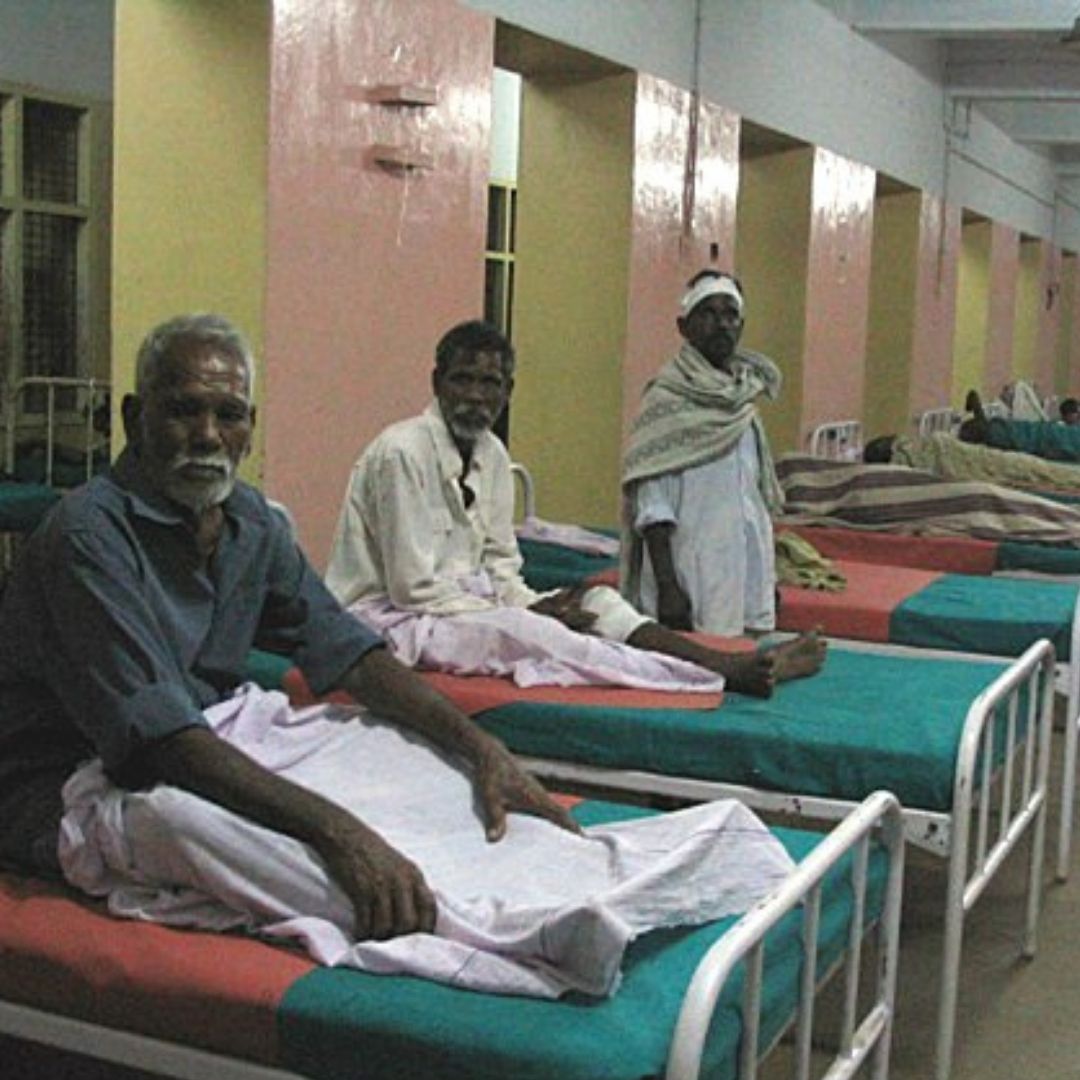
Image Credits: Wikimedia
'Close The Care Gap': What Is The Status Of Holistic Care For Cancer Patients In India?
Writer: Akanksha Saxena
I am a budding journalist who loves to write stories that have the ability to connect with people.
India, 4 Feb 2022 11:46 AM GMT
Editor : Snehadri Sarkar |
While he is a massive sports fanatic, his interest also lies in mainstream news and nitpicking trending and less talked about everyday issues.
Creatives : Akanksha Saxena
I am a budding journalist who loves to write stories that have the ability to connect with people.
Known as Palliative Care, it focuses on an integral part of the treatment where a person suffering from a life-threatening disease is provided with holistic relief, taking care of physical and psycho-social aspects.
World Cancer Day is observed every year on February 4 to raise global awareness about the life-threatening disease. As the world's health infrastructure develops by leaps and bounds, the deadly epidemic is now easily detected and diagnosed accordingly.
This year, the theme is 'Close the Care Gap'. Despite the impressive innovations, a significant part of the world is still left from accessing basic healthcare facilities to cure the ailment. As per the World Cancer Day website statistics, childhood cancer survival rates are more than 80% in high-income countries and less than 20% in low-income nations. Such countries suffer all the more as the Cervical cancer mortality rate is over 90%.
The last decade saw a staggering rise in cancer cases when it comes to India. According to Deccan Herald, the Indian Council of Medical Research (ICMR) denotes a 12% rise in cancer cases in the upcoming five years. The advent of COVID-19 in 2020 worsened with several cancer patients missing out on important treatments due to the pandemic.
Need For Palliative Care
Essentially, the need of the hour is to fight collectively against Cancer. An integral part of this is Palliative Care. The World Health Organisation defines it 'improves the quality of life of patients and that of their families who are facing challenges associated with life-threatening illness, whether physical, psychological, social and spiritual.'
The holistic care approach has existed from time immemorial. In India, palliative care has lived in ancient times, but it was formally introduced in 1986 at Mumbai's Shanti Avedna Sadan. In 1993, the Pain and Palliative Care Society was formed in Kerala, and the Indian Association of Palliative Care was created in 1994.
In a conversation with The Logical Indian, a professor of anaesthesia from Chandigarh's Government Medical College and Hospital named Dr Vanita Ahuja explains the process further. She says, "There is no specific time-frame in which Palliative Care can be done, and it can and should start at the time of the diagnosis. Also, this is not just for cancer patients. It is also for other life-limiting problems where a patient's functional capacity is reduced, and it has to be integrated with the current treatment."
Under Palliative care, the patient is well-taken care of by the caregivers, and the latter are trained to address the necessary needs until the time of death. Like other countries, India is picking up the pace of providing holistic care to patients with life-threatening diseases.
"Right now, palliative care is picking up in India in recent ten years. Thanks to a few doctors in the country, they have taken the concept forward. Now, certain courses are introduced by the Indian Association of Palliative Care, so that young minds are trained about the same. Compared to the past, we have more centres catering to palliative care," Dr Ahuja explains.
Need Of The Hour
At the moment, there are adequate measures to facilitate Palliative and Hospice Care in India. However, with the increasing number of patients with life-altering diseases, a mammoth gap exists in inaccessibility. The Journal of the Association of Physicians in India states that less than 1% of the population is aware of the process.
Dr Ahuja elaborates on the disparity, "There is a gap, I can see it between the patient and the caregiver. Most of the time, the latter is forgotten in the process. At times, both parties are unaware of shifting from cure to care. So much money is spent on the cure, while care is possible at all times. Therefore, a communication gap exists."
Further, she emphasises the need for sensitisation. Future doctors need to be groomed and taught how to go about the palliative process. "Palliative Care is not the end of the road for the patient, and everybody needs to understand its necessity. While most people would want the cure immediately, at the same time, treatment does not only entail consuming medicines, and it involves non-pharmacological and non-surgical ways as well. There are ways with which a patient's psychological well-being can be maintained," Dr Ahuja concludes.
Also Read: Have Cancer Treatments Taken A Backseat During COVID-19?
 All section
All section














